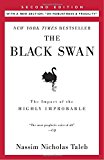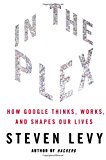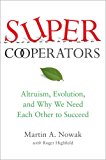I’ve never considered myself a very good writer, at least not well rounded writer. I don’t do well with long form content and I don’t follow rules very well. I was pretty good at writing poetry (or at least my professor told me I was). I think this was because I’m better at short form writing than long form and poetry doesn’t really have rules. Any “rules” that do exist can be broken if it makes the poem better. I think this is why I like blogging. It’s short form and there aren’t any real rules, at least not any that can’t be broken.
I once asked a visiting author to one of my poetry writing classes how he knew when a poem was done. He made a really interesting comment. He said that a poem is never done, you just get to a point where you feel comfortable publishing that version. Many poets will publish multiple versions of the same poem over the course of their life.
So not being a great writer, I figure this is a great approach to getting the most out of the writing I publish. Here are my top 3 tips for getting the most mileage out of your old blog posts.
Freshen Up Old Posts
One of the benefits of blogs is that they can generate a great amount of traffic from search engines. As a general rule about half of a blogs overall traffic comes from search engines to old posts. And typically there’s probably 5 to 10 posts generating most of that traffic. Do your visitors a favor and go back to make sure those posts are still up to date.
I regularly go back over my top posts but I also make an effort to go back to any post still generating traffic. I make sure all the links still work and that the formatting hasn’t been messed up by some plugin or from a time where I’ve moved the sites hosting.
I just updated the most popular post here on this site with a bunch of pictures of me. They’re kind of funny and while I don’t normally put a bunch of pictures of myself in blog posts, this one originally had two pictures of me before and after a major haircut. I changed them out with a bunch of pictures of myself that I thought actually fit the post better. I also added a relevant book recommendation at the end of the post.
My blog post comparing Apple’s org chart under Steve Jobs and Walt Disney’s org chart got a little attention 3 months ago when I wrote it, but it’s received a lot more search traffic since Jobs announced his retirement. So that’s one that I’ll probably go back and add some relevant context about Steve’s retirement.
Re-Publish Old Posts
Sometimes when I’m short on blog topic ideas I go through and re-write posts that didn’t do that well but I really felt should have done better. Maybe it was the timing of the post or maybe I wasn’t as clear as I should have been. I will often go back to posts that are a year or more old and rewrite them and republish them. Most of my readers haven’t been reading this blog for the almost 5 years I’ve been writing so the posts are still new to them and even my loyal readers don’t mind a repost if I update it.
I’ve also had posts I wrote that were just a little ahead of their time. This isn’t always a complete re-write, sometimes I just heavily quote old posts and add more context. Some of my prediction posts don’t always have a lot of meat behind them so when things happen that back up what I was talking about I’ll go back and pull-quote my own post and add the relevant new data. An example of this is when I predicted the rise of social networking sites from developing countries and then 6 months later Weibo announced plans for an English version of their service.
Taking Your Content Offline
I often use old blog posts for presentations (As well as presentations for blog posts) but a new trend I expect to see more of and am seriously thinking of doing myself is turning blog posts into books. Two recent examples of this is Rework,![]() by @jasonfried of 37 Signals, which is a compilation from the 37 Signals blog, and @GuyKawasaki’s book Reality Check: The Irreverent Guide to Outsmarting, Outmanaging, and Outmarketing Your Competition
by @jasonfried of 37 Signals, which is a compilation from the 37 Signals blog, and @GuyKawasaki’s book Reality Check: The Irreverent Guide to Outsmarting, Outmanaging, and Outmarketing Your Competition![]() . These books from blogs seem to do really well and instead of diminishing their potential readership they seem to extend the life of the content beyond their built in audience to readers who may not regularly read blogs. It doesn’t even have to be a full on printed book but ebooks seem like a natural use for this.
. These books from blogs seem to do really well and instead of diminishing their potential readership they seem to extend the life of the content beyond their built in audience to readers who may not regularly read blogs. It doesn’t even have to be a full on printed book but ebooks seem like a natural use for this.
These are just 3 simple ideas and I know there are a lot of other ways to leverage old content. I’d love to hear any ideas you have,
Similar Posts:
- A Blogging Blast From The Past
- Revisiting old topics [Tuesday Homework]
- Tools I Use - Zemanta
# of Comments 1
# of Comments 2
# of Comments 4







